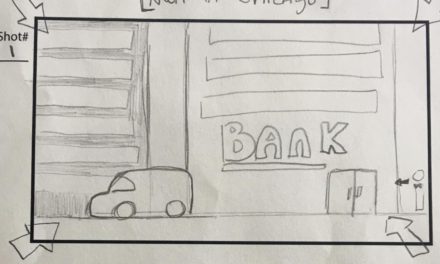As you progress through your Digital Media Degree you are bound to get offers of some form of job offers from friends, family, Gulf Coast College or even people in general. Many offers will introduce you to people that have no clue what they want, while others know specifically what they want all the way down to finite details. While the college experience is a learning environment, you will have to showcase a skill set that is of professional caliber when dealing with these clients. Knowing how to navigate client’s revisions, pricing and rate of service are the most important structures for you to understand to uphold the age-old idea that the client is always right.
YouTube video Courtesy of GaryVee
Beginning Process
Most clients come directly from people you know starting off. You might have started a Basic Video class and have been showing your ability to shoot, edit and film all sorts of practice materials around your home and environment. A friend of a friend might say that he told his buddy about you and would like for you to shoot his event that is happening downtown. The first thing that comes to mind is, “am I ready?” The truth is that if you have the equipment, you are technically ready. You may not be polished enough but you never know until you go out and start working on the gig. Asking up front what the client wants is a must when dealing with clients. Getting it in writing is also a must because clients always change their mind, I mean always. One way to help with getting started is prepping. I can’t stress this enough. You must learn to prep your gear when you are dealing with Photography and Video. The wrong lens or no extra battery can lead you to having a bad day. What I like to do is research the area or pick a location beforehand to see the best area to film or shoot the video and then go from there. The more preparation you do, the better the result for the client. Clients will always view you as a professional. If you have a camera in your hand, they are thinking you know what you are doing. That is why educating yourself on your equipment’s technical specifications is important. Nobody will know more than you do about your equipment. Simply put, you want to always make sure that you establish four key parts right at the beginning. What it is they want, where is it located, the amount of time it will take and the pricing. These will help you avoid the major issues that usually come with clients.
Revisions
As I have dealt with clients in my professional art career, I have had numerous revisions on pieces and some where the changes could sacrifice the piece themselves. In video editing, changes can occur easier due to it being an editing software. However, time plays an important role because they may be on a crunch and you must do revisions within hours before a project is due. The best way to handle revisions is to treat clients as if they know nothing. Ask tons of questions even if they are apparent to you. When clients come to you, they put your ideas and concepts ahead of theirs because they believe this is what you specialize in. Many times, after the project is completed, their so called amazing or creative ideas start to run amok and this is the time when revisions take place. A way to avoid many of the hassles that come with revisions is to always have every form of your project ready for changes. That means if it is a video, have the original files saved. If it is a photography, make sure you have the raw files. This goes for logos, art and any other creative medias.
Pricing
The hardest aspect of creating any art form is pricing. Most creators of any sort simply throw out a number that sounds right but there are methods to pricing, such as the overhead to create the piece. This essentially boils down to an estimate of how much all the materials cost and a standard rate of pay of $10 an hr. This is a great guideline when figuring out where you should start. As you expand on your project skills, you can create a standard rate of pay based on your last project. For example, if you did a videography job for $700. Then that could be your standard rate and up for future projects. Building a great clientele relationship will get you more jobs in the future and lead you on a path of having regulars where you can build your brand or name. The classes within the Digital Media Program such as Project Management helps you break down the techniques on how you utilize effective tools to help you along the projects durations. One important element that will stay with me is the five processes of Project Management, which is, Initiation, Planning, Execution, Monitoring & Controlling and finally Closing. In the career field of Digital Media, there is no set pattern on the right way to do anything. Just tools and techniques to help you come to a solution that is right for you.
Final Thoughts
Clients can be a bothersome and make your life hell when they simply can’t figure out what they want. However, they’re needed in the business because they are how you get paid and how you showcase the skills you learned. The classes offered at Gulf Coast State College help in developing the skills you need in real world applications. Classes such as Basic Video, Digital Production, Visual storytelling, Photoshop and more will aid you as clients start noticing that your services are needed for their projects. Having a clear guideline about what you want to effectively communicate with a client is must. Set up a plan even though it may be changed later and build it based on what you need and what works for you. This plan will include pricing and I would also add how many revisions a client can give. This cuts down on last minute changes for things that could have been corrected in an earlier process. As you progress through your degree at Gulf Coast State College, I would also keep the books of the courses you completed because they are a valuable resource later to refresh on techniques you might have forgotten. To this day, I continue to keep my basic video production handbook. You can never know enough about any subject. College is more than simply a learning environment, it is also a place for making connections and those connections are where clientele is built on. Clients are always right but remember that you have the power to help guide them to the best solution for their needs and that comes from having a plan and a clear directive for executing it.
About The Author

Perry Ellis
Student - Spring 2018









